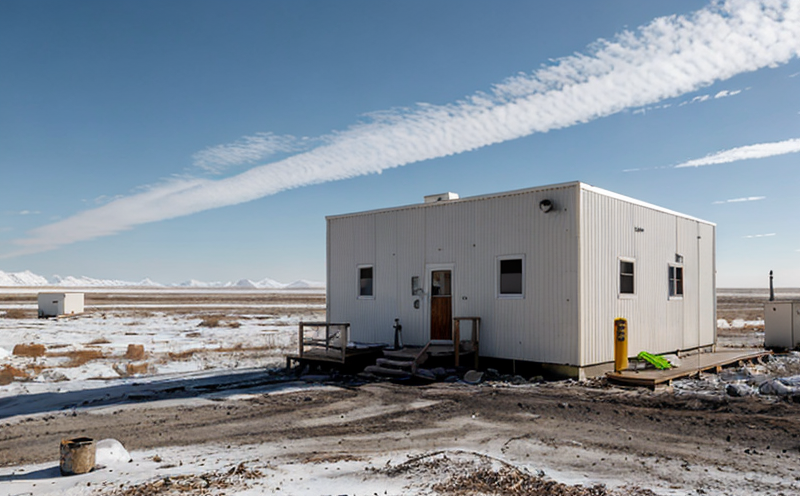JEDDEC JESD89C Neutron Induced Single Event Upset Testing
The JEDEC JESD89C standard provides a comprehensive framework for the testing of semiconductor and microchip devices subjected to neutron-induced single event upset (SEU) events. This testing is critical in ensuring that electronic components perform reliably under radiation exposure, which can be encountered in various harsh environments such as space, nuclear power plants, and high-altitude regions.
Single Event Upset (SEU), also known as Single Event Effect (SEE), occurs when a particle interaction with the silicon lattice of a semiconductor device causes an unintended change in its electrical properties. Neutrons are particularly problematic because they can produce SEUs even at low flux levels, making them a significant concern for devices operating in space or near nuclear facilities.
The testing methodology outlined in JESD89C involves subjecting the target microchip to controlled neutron irradiation and subsequent operational testing to identify any changes in device performance. This process ensures that the device remains functional after exposure to expected radiation levels, thereby enhancing system reliability and safety.
The standard specifies detailed procedures for setting up the test environment, including neutron sources and dosimetry equipment. It also defines acceptance criteria based on pre- and post-test measurements of key parameters such as leakage current, threshold voltage, and device functionality.
Preparing the specimen for testing involves selecting a representative sample from the production lot to ensure that the results are indicative of the entire batch's performance under radiation exposure. The sample is then characterized using standard techniques before being subjected to neutron irradiation according to the specified dose rates and fluence levels.
The test setup typically includes a neutron generator or accelerator, dosimeters for monitoring the neutron flux and energy spectrum, and environmental control equipment to maintain consistent conditions during testing. Post-test evaluation involves thorough inspection of the device's electrical performance and physical integrity, ensuring that no permanent damage has been caused by the radiation exposure.
Reporting the results is crucial for compliance with regulatory requirements and internal quality assurance programs. The report should include detailed information on the test parameters, specimen preparation, equipment used, and any deviations from standard conditions. It must also document the observed effects of neutron irradiation and compare them against pre-test baseline data to determine whether the device meets the specified acceptance criteria.
This testing is essential for industries where reliability under radiation exposure is critical, such as aerospace, defense electronics, and nuclear instrumentation. By adhering to JESD89C standards, manufacturers can ensure that their products meet stringent quality and safety requirements, thereby enhancing customer confidence and market competitiveness.
Benefits
- Ensures compliance with international standards (JESD89C)
- Enhances product reliability in harsh environments
- Reduces risk of failures due to Single Event Upset
- Aids in the design and development of radiation-hardened devices
- Saves time and resources by identifying issues early in the production process
- Supports regulatory compliance for space, defense, and nuclear applications
- Improves overall product quality and customer satisfaction
- Provides detailed insights into device behavior under neutron exposure
Eurolab Advantages
At Eurolab, we offer unparalleled expertise in semiconductor and microchip testing, leveraging our state-of-the-art facilities and experienced technical staff to provide comprehensive JESD89C compliance services. Our team of experts ensures that every aspect of the testing process adheres strictly to international standards, guaranteeing accurate and reliable results.
We employ advanced neutron irradiation equipment capable of delivering precise control over exposure parameters, allowing us to simulate real-world radiation environments accurately. This precision is crucial for obtaining meaningful test data that reflects actual operational conditions.
Our facilities are equipped with sophisticated dosimetry systems and environmental control units, ensuring consistent and stable testing conditions throughout the process. Additionally, we offer a wide range of support services, including specimen preparation, post-test analysis, and detailed reporting, to meet all your testing needs effectively.
Choose Eurolab for your JESD89C testing requirements, where our commitment to quality and innovation sets us apart from other providers in the industry. With us, you can trust that every test conducted will deliver reliable outcomes, enhancing the performance and reliability of your semiconductor devices in harsh environments.
Use Cases and Application Examples
| Application | Description |
|---|---|
| Aerospace Electronics | Radiation-hardened avionics require testing to ensure reliability in space missions. |
| Nuclear Power Plants | Components used in nuclear instrumentation must withstand high radiation levels without failure. |
| Space Communication Systems | Electronic devices in satellite communications need to operate effectively under neutron flux. |
| Defense Electronics | High-reliability components for military and defense applications require stringent testing standards. |
| Hypersonic Aircraft | Electronics operating at high altitudes must be tested for SEU resistance to ensure safe operation. |
| Military Satellites | Radiation-hardened electronics are critical for the reliable operation of military satellites. |





